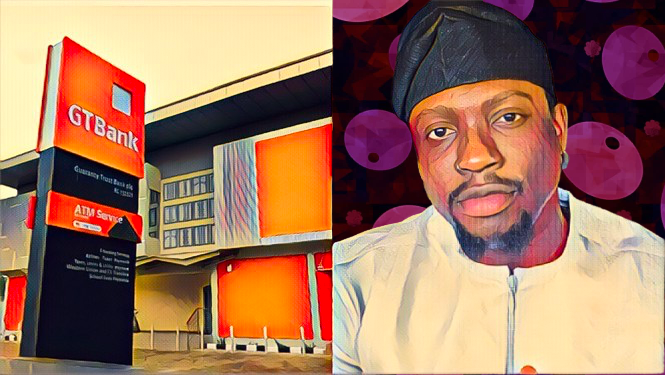KEY POINTS
-
The arrest of social media activist VeryDarkMan triggered violent protests, including arson attacks on GTBank branches in Benue State, and spurred over 100,000 account closures nationwide.
-
A coalition of international supporters, religious leaders, and celebrities has amplified demands for transparency, accusing the EFCC and GTBank of suppressing free speech and political dissent.
-
The crisis highlights growing tensions between Nigeria’s youth-led digital activism and governmental accountability, with economists warning of potential ripple effects on the financial sector and national stability.
In a dramatic outburst of public anger, two Guaranty Trust Bank (GTBank) branches in Benue State have been set on fire following the controversial arrest of Martins Vincent Otse, a social media activist better known as VeryDarkMan, VDM.
The protest, which erupted after his arrest, has quickly escalated into a nationwide uproar, drawing attention to what many consider an unjust detention.
A video, which went viral on social media platforms, features an unidentified individual issuing a stark warning: “We have burned down two GTBank banks here in Benue. We don’t want to see anyone using GTBank. As they’ve arrested VeryDarkMan, they will see very dark problems. We will burn more banks if EFCC doesn’t release VDM.”
The fallout from the incident has been swift and widespread. Within 24 hours, over 100,000 Nigerians reportedly closed their accounts with GTBank, and the bank’s mobile apps received an overwhelming number of negative reviews.
Both Google Play and the Apple App Store saw a surge of complaints, with users voicing their displeasure with the institution. Social media platforms like X (formerly Twitter), Facebook, and Instagram have been inundated with posts from outraged Nigerians, demanding accountability and the release of VDM.
Tell News reports that the catalyst for the protest has been the arrest of VDM by the Economic and Financial Crimes Commission (EFCC), an act many see as an overreach by the government in an attempt to silence critics.
VDM, who has gained a substantial following for his vocal criticisms of the Nigerian government and socio-economic issues, had been active in exposing corruption and advocating for reforms. Despite the uproar, neither GTBank nor the EFCC has officially clarified the reasons for his arrest, which has now lasted several days.
“It is shocking that someone who has been using his platform to highlight the struggles of the average Nigerian can be treated in such a manner,” said a Nigerian social media influencer who wished to remain anonymous. “The government’s actions only confirm what many of us have suspected for years—that those who speak out against corruption are targeted.”
Protestsfor VDM reach a nationwide scale
The backlash against both the EFCC and GTBank continues to build, with people from across Nigeria rallying under the hashtag #FreeVDM. Public figures, including musicians, actors, and activists, have voiced their support for VDM. Seun Kuti, the famous Nigerian musician, expressed his anger, stating, “The EFCC must come out and tell us why they’ve arrested a man who’s been fighting for the ordinary Nigerian. If they can’t, they must release him immediately.”
Other prominent figures such as Koko Pee, a Nigerian celebrity, have echoed similar sentiments. “We deserve transparency. Keeping VDM in custody without any explanation is an affront to our rights,” Koko Pee remarked.
A religious perspective has also been offered by Rev. Fr. John Oluoma, a Catholic priest, who publicly praised VDM for his work. “What God has used VeryDarkMan to do in Nigeria, not even Daddy G.O. or powerful prophets have done. His name may be VeryDarkMan, but he does very light things.”
The anger has extended beyond Nigerian borders, with members of the Nigerian diaspora joining the #FreeVDM campaign, urging for a global conversation about freedom of speech and accountability in governance. Observers have pointed to a possible underlying motive behind VDM’s arrest, especially as GTBank had recently announced an unprecedented ₦1 trillion profit, making it a target for some as a symbol of corporate power.



